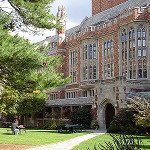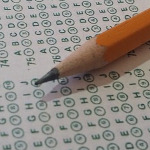No. 1 of the Top 10 Horrible, Terrible, No Good Mistakes Lawyers Make in Mediations
“Let’s assume the mediator sticks his head into your room with a grin at 8pm after an exhaustive day when your client is still upset he made the 8th counteroffer and the Mediator says: “Great news! Counter-offer accepted! We have a deal!” Wonderful, right? Even though your client was pushed way past what he came ready to do that day, you have a deal. So what mistakes are made when it comes to confirming the long sought, hard fought deal?” asks David K. Taylor in Buildsmart Mediation.
“This post is a continuation of the 10 most horrible, terrible, no good, “bang your head against the door” mistakes that I have seen lawyers make before, during and after mediations in which I was the mediator. As stated in previous posts, it takes more than throwing together a mediation statement at the last second and showing up at the mediation. Doing it right requires the same kind of due diligence and work that goes into preparing for a key deposition or even trial. Great “mediation” lawyering is essential and is the best way to get to an acceptable deal.”
Read the Top 10 mistakes made in mediations.


